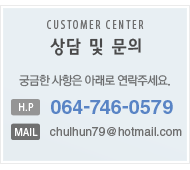Education
Do you think there is too much pressure on you people at school these days?
오늘날 학교의 젊은이들은 지나친 압박을 받고 있다고 생각하나요?
Tip:
For this question, students often have trouble explaining their answers clearly
and logically. Remember: always give reasons for your statements.
(1) Why might there be pressure on students to go to a good university?
(2) What do students do in order to keep up with the competition?
Tips: 이 문제에 대해, 학생들은 종종 그들의 답변을 명확하고 논리적으로
설명하는 데에 어려움을 겪는 경우가 있습니다. 항상 여러분의 진술에 대한 이유들을 항상 제시하도록 하세요.
(1) 좋은 대학에 들어가려는 학생들에게 왜 압박이 있을 수 있을까요?
(2) 경쟁에 뒤지지 위해서 학생들이 무엇을 하나요?
Do you think school and university prepares young people adequately for real life?
학교와 대학은 현실을 위해 젊은이들을 제대로 준비시키고 있다고 생각하나요?
Tip: ‘Real life’ could mean any
aspect of our daily life, from work to maintaining relationships to saving
money.
(1) Think about what skills are necessary in daily life. Do school and
university provide us with these skills? How?
(2) What don’t we learn from school or university? Think about the workplace.
Tip: 'real life’는 우리의 일상적인 삶의 어떤 측면이든 의미할 수 있어요. 일에서부터 관계를 유지하는 것, 돈을 절약하는 것까지.
(1) 실생활에서 필요한 기술들에 대해 생각해 보자. 학교와 대학은 우리들에게 이러한 기술들을 제공하는가? 어떻게?
What is the difference between teaching the young and the elderly?
젊은이들과 어르신들을 교육하는 데에는 어떤 차이가 있나요?
Tip: This question isn’t asking
you to say which one is better – it’s just asking what the differences are.
(1) What skills and abilities do young people have that allow them to learn
more easily than the elderly?
(2) What skills and abilities do the elderly have that allow them to learn more
easily than the young?
Tip: 이 질문은 무엇이 더 나은지에 대해 대답하라고 묻는 게 아니라 그 차이점이 무엇인지를 묻는 질문입니다.
(1) 젊은이들은 그들이 어르신들보다 더 쉽게 배우는 걸 가능케 하는 어떤 기술들과 능력들을 가지는가?
(2) 어르신들은 그들이 젊은 사람들보다 더 쉽게 배우는 걸 가능하게 하는 어떤 기술과 능력을 가지는가?
Do you think there are age limitations to study?
공부하는 데에 나이 제한이 있다고 생각하나요?
Tip: This question is very similar to question 3. It’s about
whether your learning ability decreases as you get older.
(1) What skills are useful in learning?
(2) Do adults develop or hone these skills as they age?
Tip: 이 질문은 3번과 매우 흡사한 질문입니다. 나이가 들수록 학습능력이 저하되는지 아닌지에 대한 질문입니다.
(1) 배움에 있어서 유용한 기술은은 무엇인가?
(2) 성인들은 나이가 들면 이러한 기술을 개발하고 연마하는가?
How has education changed compared fifty years ago?
5년 전과 비교했을 때 교육은 어떻게 변화했나요?
Tip:
Even if you weren’t in school fifty years ago, think about your parents’ experience,
or make a guess. Remember, the important thing is to express yourself clearly
and logically, not whether your answer is factually correct or not.
(1) How big were classes in the past? Has this changed?
(2) What method of learning was popular in the past? Has this changed?
Tip: 비록 여러분이 50년 전에 학교에 다니지 않았을지라도, 여러분의 부모님의 경험을 생각해보거나 추측을 해보세요. 가장 중요한 점은 여러분의 답이 사실적으로 올바르냐가 아니라 명확하고 논리적으로 표현하는 것이라는 것을 기억하세요.
(1) 과거에는 학급이 얼만큼 컸는가? 어떻게 변화했는가?
(2) 과거에는 어떤 교육방식이 유행했는가? 이것은 변화했는가?
What kinds of changes do we need for education?
교육을 위해 어떤 종류의 변화들이 우리에게 필요한가요?
(1)
What problems exist within the current education system?
(2) What changes could be made to solve these problems?
(1) 현재의 교육체계에는 어떠한 문제들이 존재하는가?
(2) 어떤 변화들이 이 문제들을 해결하기 위해 취해질 수 있을까?
Who do you think children should follow: their teachers or parents?
Tip: It’s fine if you don’t want to select either choice.
The important thing is to give your opinion and support it clearly and
logically.
(1) What advantages can be gained from obeying teachers and parents?
(2) Are teachers and parents always right?
Tip: 두 가지 옵션 중 어느 것도 택하고 싶지 않다 해도 괜찮아요. 중요한 것은 여러분의 주장을 펼치고 그것을 명확하고 논리적으로 지지하는 것입니다.
(1) 교사들과 부모님들을 따르는 것으로부터 얻을 수 있는 장점들은 무엇인가?
(2) 교사들과 부모님들은 항상 옳은가?
< sample answer >
Do you think there is too much pressure on young
people at school these days?
I’d
say yes, there is. I mean, in Korea, it’s considered to best for students’
future to go to a top-tier university, which creates an overly competitive
environment. So, Korean students are forced to go to private academies after
school... In the worst cases, some Korean students give up their lives just
because they fail to go on to a prestigious university, which is awful. So as
far as I’m concerned, something needs to be done to take some pressure off
students.
Do you think school and university prepare young
people adequately for real life?
Well… In some ways yes, in some ways no. I mean, through group projects,
sports, and clubs, school and university can give us interpersonal skills and
teamwork skills, which are useful at work and when maintaining relationships.
On the other hand… The education system doesn’t currently provide students with
experience, such as through internship programmes or work placement schemes, so
when graduates enter the workplace, they need to learn lots of things from
scratch. So I think the education system is adequate to a certain extent.
What is the difference between teaching the young and
the elderly?
Well, off the top of my head, there are several
differences. For example... When it comes to physical education, young people
can endure more demanding activities like soccer or tennis. On the other hand,
whereas the elderly are more frail. And... As for mental ability, young people
are better at memorization and absorbing new information. Whereas, older people are generally more disciplined and
diligent, and so they sometimes know how to study more effectively. So it’s
necessary to take different approaches according to the students’ age.
Do you think there are age limitations to study?
OK…
No, I wouldn’t say so. There’s no limit to learning if you are hard-working
enough. I mean, your mind might be sharper when you are young, but as you age,
you develop skills that help you to learn more effectively, such as time
management skills and self-discipline. So there’s no cut-off point to learning,
I think.
How
has education changed compared to fifty years ago?
Hmmm,
that’s a tough one... One change is that there were many more students in
classes fifty years ago, like 60 to 70 students, and most students had to walk
about five kilometres to go to school every morning, because there weren’t many
schools. But... now, classes are much smaller and there are more schools. That
said, one thing that hasn’t changed at all is the focus on rote learning. My
father had to memorise almost every single page of his text books and so did I!
What
kinds of changes do we need for education?
Wow,
that’s a big question... but I’d certainly say a lot needs to be changed. There
are increasingly loud voices for educational reform in Korea. I mean, secondary
education in Korea is largely based on memorisation rather than creativity or
critical thinking, both of which are crucial in personal and professional life,
so... We need to encourage students to engage in discussions and creative
activities. Also... we need to provide more teachers so that students can study
in smaller classes. So plenty of things need to change.
Who do
you think children should follow: their teachers or parents?
Right…
that’s a tough one… I think young people should listen to the advice of both
parents and educators, but they also need to make decisions for themselves. I
mean, parents and teachers have more life experience than kids, but everyone
makes mistakes. On top of that, their views might be outdated… So I think
youths need to listen carefully to elders, think critically about their advice,
and then come to their own conclusions. So basically… children should listen to
both teachers and parents.
- 제주도 유일한 off-line 아이엘츠 학원-
- 주소 : 제주특별자치도 제주시 과원북4길 33 3층 그리피스잉글리쉬어학원
- TEL : 064-746-0579ㅣE-mail : chulhun79@hotmail.comㅣ대표자 : 허철훈 | 사업자등록번호 : 758-95-00099
- Copyright © 2016 그리피스잉글리쉬어학원. All rights reserved.




